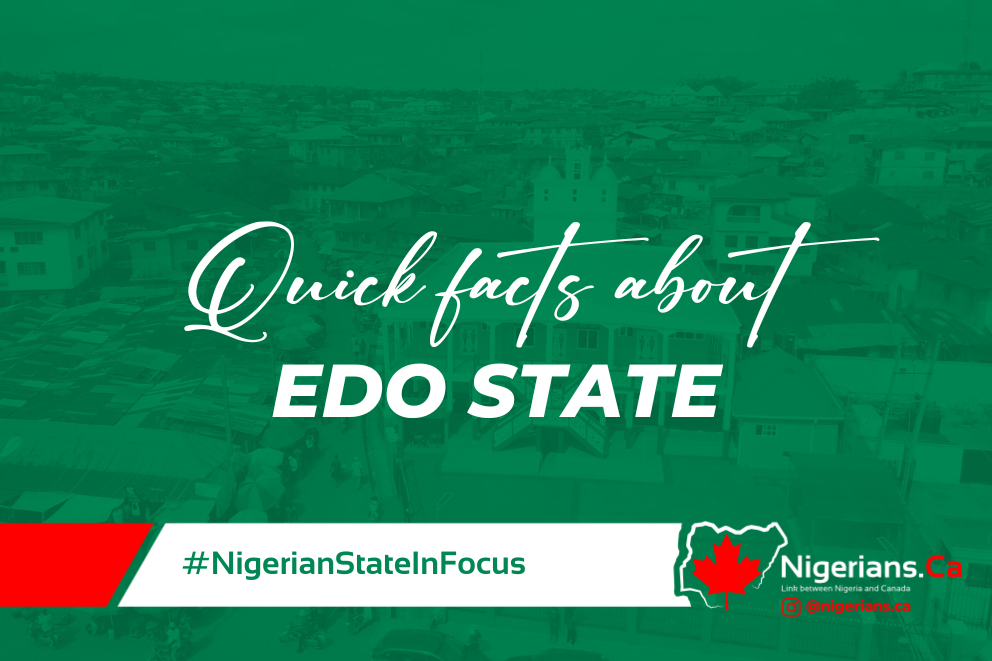Edo state in southern Nigeria is bounded by the states of Kogi to the northeast and east, Anambra to the east, Delta to the southeast and south, and Ondo to the west and northwest; the Niger River flows along the state’s eastern boundary. Benin City is the state capital and largest urban centre.
Edo state was formed in 1991 from the northern portion of Bendel state, the southern portion becoming Delta state.
The state is inhabited largely by the Edo (Bini) people, who are linked to the historic kingdom of Benin.
Based on area size, it is the 22nd largest state by area in Nigeria and out of the 36 states in Nigeria, Edo is ranked the 27th most populous state.
The state's capital and city, Benin City, is the fourth largest city in Nigeria, and the centre of the country's rubber industry.
Edo state is made up of four major ethnic groups; namely Edo (Binis), Owan, Esan and Afemai (Etsako & Akoko Edo). However the State has a high presence of residents from across the country and the world because of its cosmopolitan tendencies.
Benin City has a history of being one of the foremost destinations of Europeans during their exploration of Africa continent many centuries ago. Some of these flash points have remained enviable tourists’ attraction sites for the state.
Agriculture is the mainstay of the economy. Yams, cassava (manioc), oil palm produce, rice, and corn (maize) are the major subsistence crops, while rubber, timber, and palm oil and kernels are cash crops.
The state produces crude oil and other mineral resources like limestone and quarry. The state has a cement factory at Okpella and a Flour Mill at Ewu which is moribound.





